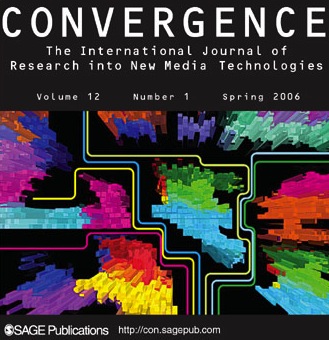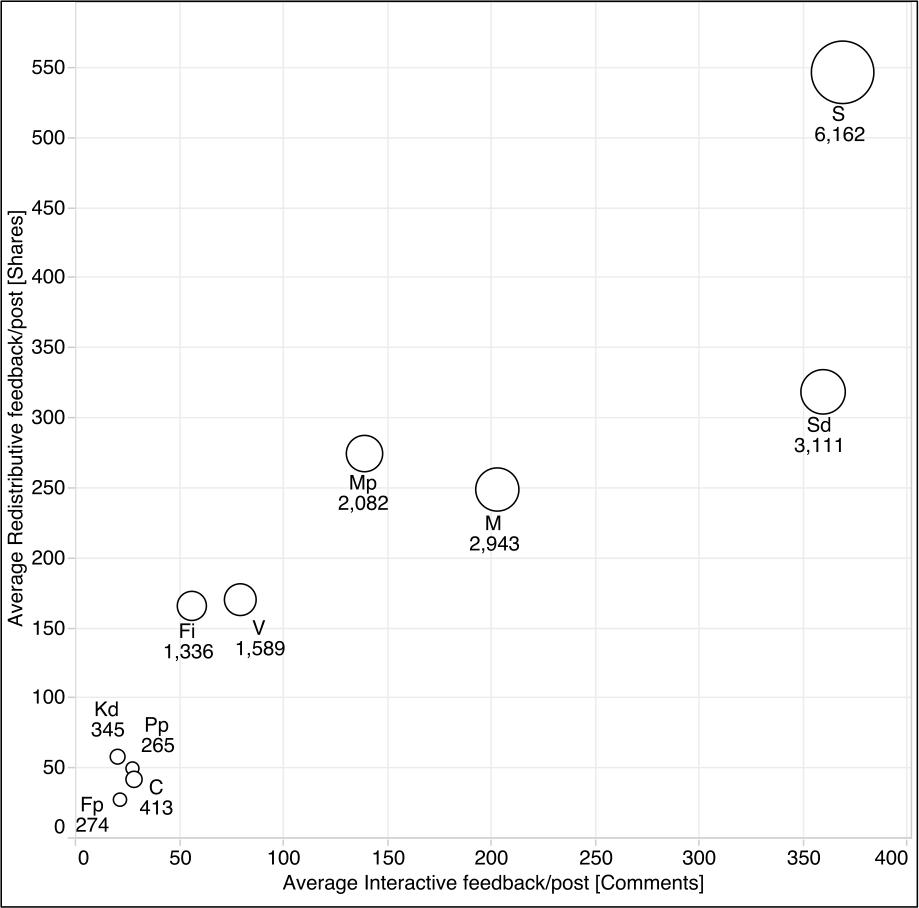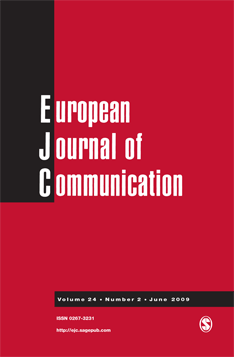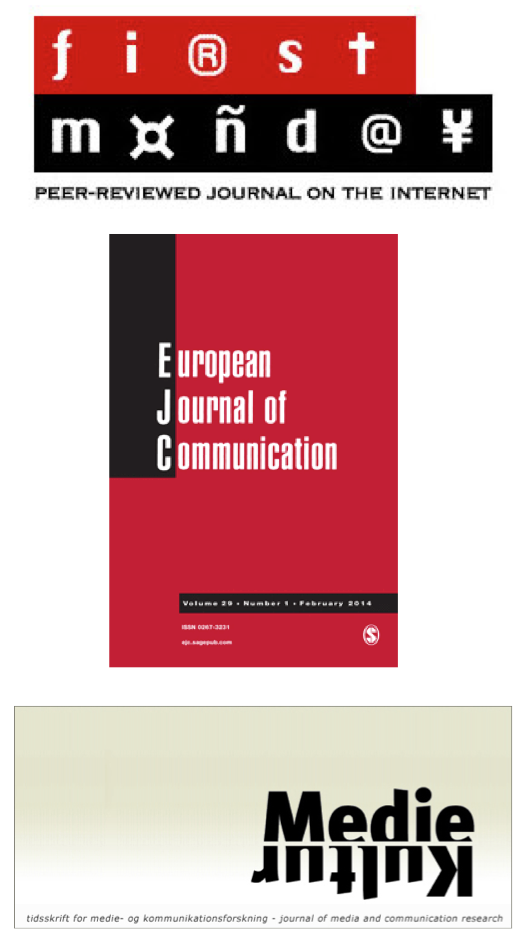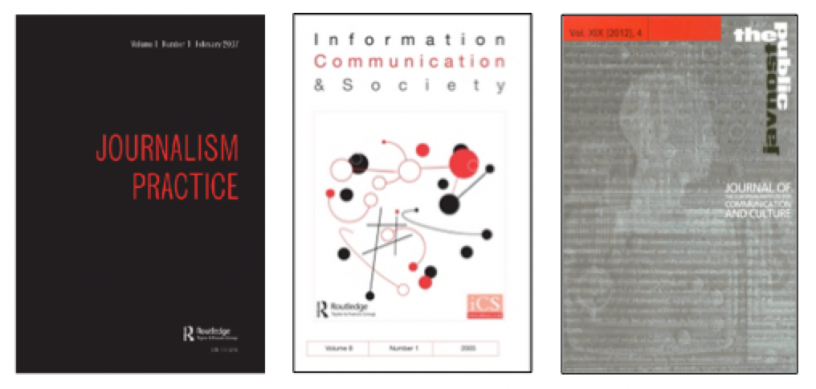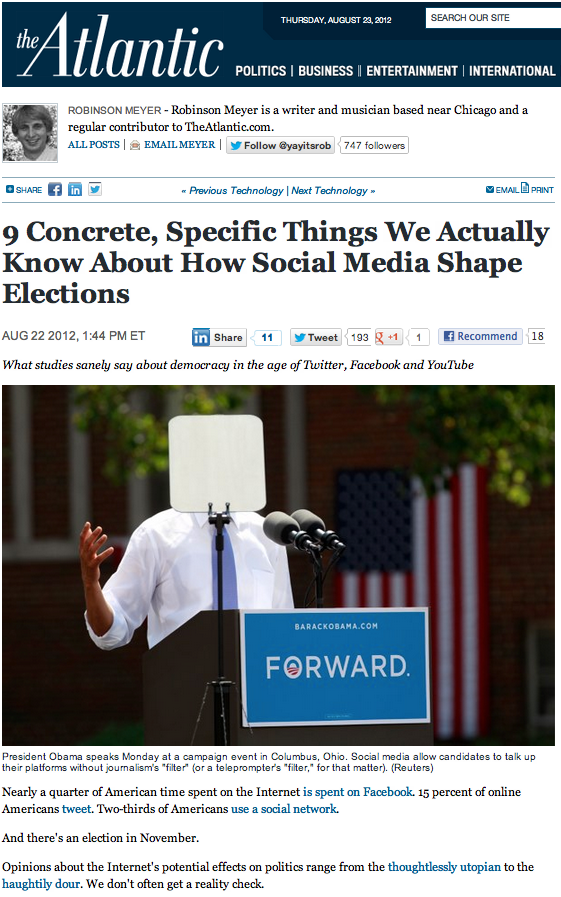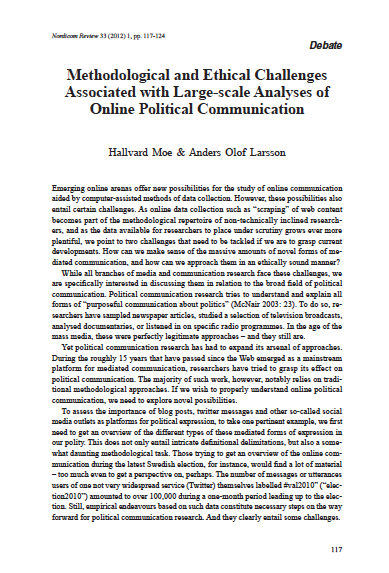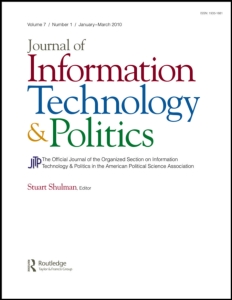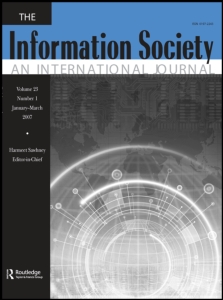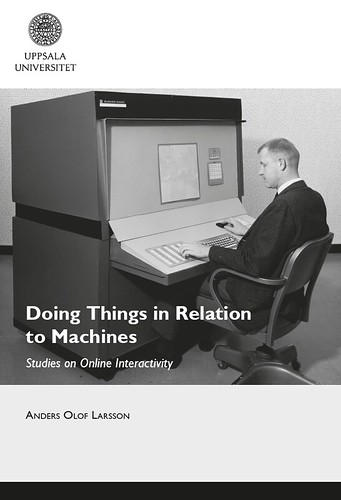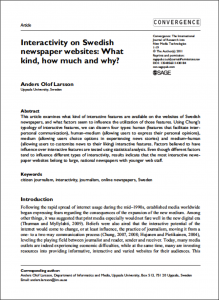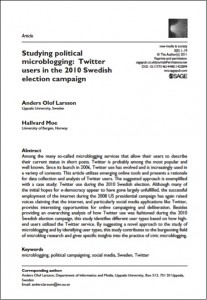The first of what I hope will be a series of publications dealing with various social media activities during the 2014 Swedish elections has been accepted for publication in Convergence: The International Journal of Research into New Media Technologies. The paper, titled “Going Viral? Comparing Parties on Social Media During the 2014 Swedish Election”, makes a case for comparing the oft-studied Twitter platform with the more seldom studied Facebook variety in this regard. You can find the accepted pre-print version on academia.edu or ResearchGate. Moreover, thanks to my department, the paper will be made available open access through the SAGE Choice program. The abstract is inserted below:
While research has provided useful insights into political party use of Twitter, comparably few efforts have focused on the arguably more popular Facebook service. This paper takes both platforms into account, detailing similar functionalities and providing analyses of the social media activities undertaken by Swedish political parties during the 2014 elections. Moreover, the types of feedback received by the parties on these platforms are gauged. Findings suggest that while sizeable parties are not necessarily the most ardent at using social media, they do receive the most attention. In essence, then, party size matters – however, the role of the right-wing populist Sweden Democrats is clearly felt throughout, suggesting the apparent prowess of controversial parties in the online context.
Employing such a comparative approach brings with it a series of challenges – how to present activities undertaken by the parties in a way that makes it easy (or at least relatively easy) to assess both services? Employing my previously discussed suggestions on how to compare Twitter and Facebook, I used the model previously suggested in a more empirical sense. Using the Tableau application, I graphed the types of feedback received by the parties in two graph, one for each service. As an example, the graph depicting Facebook activity is included below, together with an excerpt from the paper itself. The remainder of the analysis is of course available in the paper itself.
Figure Three. Average feedback received per post on Facebook. Horizontal axis indicates M of Comments/post; Vertical line indicates M of Shares/Post; Node size and label indicate M of Likes/Post.
The results presented in Figure Three suggest a linear tendency among the represented parties – meaning here that as the average statistic for the redistributive type of feedback for Facebook (shares) increase, so does also that same statistic for interactive feedback (comments). Given the sizes of the nodes and their corresponding labels, this tendency of increasing averages as we move diagonally from the downward left corner to the upward right can be discerned also here. Indeed, correlation analyses using Spearman’s Rho proved correlations between all three involved variables to be significant (p =<.000 for all correlations) and comparably strong with Rho varying between .779 and .871 for all correlations. With this in mind, it would appear that while the Social Democrats – marked as ‘S’ in the Figure – only amassed the fourth highest amount of ‘Facebook fans’ on the service at hand (see Table One), these fans appear to have put in quite an effort to make the specified account visible. This seems especially true in terms of Shares (M = 547, Std. dev. = 442) and Likes (M = 6162, Std. dev. = 5128), where high standard deviations nevertheless suggest a considerable spread around the reported means. Similar claims appear as valid for the average number of comments received (M = 368, Std. dev = 323). Focusing on the content provided through the account, the most Liked (N of Likes = 28810) post offered by the Social Democrats is coincidentally also the most commented (N of Comments = 2361). This post, penned late election night, features party leader Stefan Löfven giving thanks to party supporters and staffers after the party had been declared victorious . The most shared content from the Social Democratic account is posted on August 27th – the very same day that advance voting possibilities opened for the upcoming election. Consequently, this post urges supporters to vote in advance and to share the post itself in order to spread the message about this possibility . This tendency of popularity of posts that encourage supporters to vote and to share this encouragement using the redistributive functionality of Facebook is visible also for other parties, such as the Conservatives (M) and the Environmental Party (Mp), although not for the other stand-out party as visible in Figure Three – the right-wing populist Sweden Democrats. Here, the most shared as well as the most commented post is offered on September 4th and features sneak premiere of an election commercial to be broadcast on Swedish commercial television the following day . Their most successful post in terms of Likes (N of Likes = 9648) was made available on August 20th and deals with the controversy started when the party wanted to place their admittedly polarizing political advertisements on Stockholm public transport buses .
